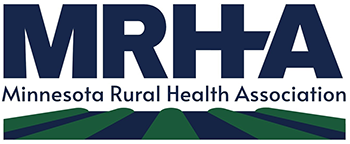AdvocacyMRHA is pleased to serve as the Voice of Rural Health! We are committed to bringing forward a rural perspective to policy conversation that include the health, health care and well-being of rural Minnesotans. We work with local, state and federal partners to bring this voice forward.Policy Priorities
In staying true to our mission, we believe a rural health system that best serves the people who live in, work in, learn in, and visit rural Minnesota should:
We continually monitor legislative activity at the local, state and federal levels. We gather input from our members and partner organizations to keep our priorities in line with the rural health environment. 2025 Legislative Priorities Since 1994, the mission of Minnesota Rural Health Association (MRHA) has been to strengthen the health, health care and well-being of rural Minnesotans through leadership, advocacy, education, and collaboration. Our members include rural hospitals, clinics, behavioral health providers, transportation providers, and others who are on the frontlines of delivering the care and services needed to address the health needs that rural communities face. Provider Reimbursement Policy & Rates Rural healthcare provides services to higher proportions of people who rely on Medicare and Medicaid for health insurance. Payment rates from government payers are significantly lower than the cost of delivering the services. Reimbursement policies put in place by payers have caused an increase in administrative cost for providers and delays in payments. This circumstance disincentivizes health care providers investment in new programs and contributes to the discontinuation of service. MRHA supports innovative programs focused on building on the pipeline of individuals entering healthcare fields, retaining and upskilling the current workforce, and providing a safe environment for rural providers. Sustainability of Rural Medical Transportation Emergency Medical Services (EMS) and Non-Emergency Medical Transportation (NEMT) in rural Minnesota are often funded through local solutions or regional infrastructure. Rural Medical Transportation providers face critical challenges to delivering service across rural Minnesota, including severe reimbursement shortfalls, workforce shortages, and increasing operating costs. These challenges are forcing communities to make difficult decisions. MRHA supports emergency funding to rural EMS providers to keep services operating along with increased Medicaid reimbursement that more closely aligns with the cost of transportation. Rural Workforce Development80% of Minnesota’s rural counties are designated as Health Professional Shortage Areas (HPSA) for primary care, dental health and mental and behavioral health. This circumstance is further exacerbated due to staff shortages across the entire spectrum of employment in rural communities, from entry level to highly credentialed medical providers. MRHA supports innovative programs focused on building the pipeline of rural individuals entering healthcare fields, retaining and upskilling the current rural workforce, enhancing educational offerings, and providing a safe environment for rural providers. Preserving the Rural Health Care SystemPeople who live in rural communities have been experiencing a steady decline in access to healthcare services and programs. Even when considering health care providers in the broadest sense, including primary care, oral health, and behavioral health that have a wide array of workforce credentials and job title and include solutions such as telehealth, there are not enough care providers to meet the needs across rural Minnesota. This is due to many interrelated and co-occurring issues and challenges. Ensuring access to timely, patient-centered services are critical to achieving the best health outcomes. MRHA supports investing in innovative models to ensure and enhance access to services and programs that are designed to serve the needs of rural communities. 2025 Legislative Priorities |





